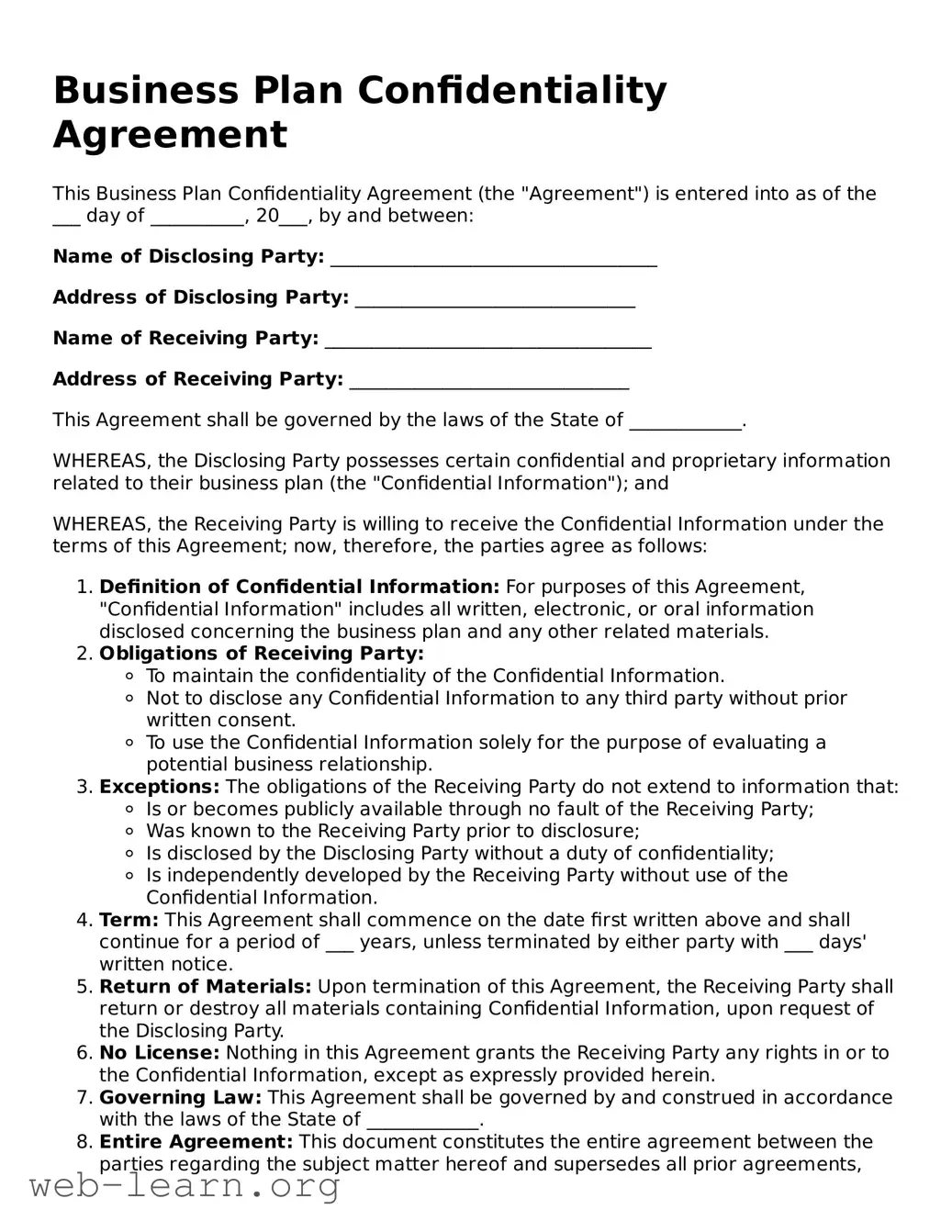Business Plan Confidentiality Agreement
This Business Plan Confidentiality Agreement (the "Agreement") is entered into as of the ___ day of __________, 20___, by and between:
Name of Disclosing Party: ___________________________________
Address of Disclosing Party: ______________________________
Name of Receiving Party: ___________________________________
Address of Receiving Party: ______________________________
This Agreement shall be governed by the laws of the State of ____________.
WHEREAS, the Disclosing Party possesses certain confidential and proprietary information related to their business plan (the "Confidential Information"); and
WHEREAS, the Receiving Party is willing to receive the Confidential Information under the terms of this Agreement; now, therefore, the parties agree as follows:
- Definition of Confidential Information: For purposes of this Agreement, "Confidential Information" includes all written, electronic, or oral information disclosed concerning the business plan and any other related materials.
- Obligations of Receiving Party:
- To maintain the confidentiality of the Confidential Information.
- Not to disclose any Confidential Information to any third party without prior written consent.
- To use the Confidential Information solely for the purpose of evaluating a potential business relationship.
- Exceptions: The obligations of the Receiving Party do not extend to information that:
- Is or becomes publicly available through no fault of the Receiving Party;
- Was known to the Receiving Party prior to disclosure;
- Is disclosed by the Disclosing Party without a duty of confidentiality;
- Is independently developed by the Receiving Party without use of the Confidential Information.
- Term: This Agreement shall commence on the date first written above and shall continue for a period of ___ years, unless terminated by either party with ___ days' written notice.
- Return of Materials: Upon termination of this Agreement, the Receiving Party shall return or destroy all materials containing Confidential Information, upon request of the Disclosing Party.
- No License: Nothing in this Agreement grants the Receiving Party any rights in or to the Confidential Information, except as expressly provided herein.
- Governing Law: This Agreement shall be governed by and construed in accordance with the laws of the State of ____________.
- Entire Agreement: This document constitutes the entire agreement between the parties regarding the subject matter hereof and supersedes all prior agreements, understandings, and discussions.
IN WITNESS WHEREOF, the parties have executed this Agreement as of the date first above written.
Disclosing Party:
_____________________________________________
Signed _________________________ Date ______________
Receiving Party:
_____________________________________________
Signed _________________________ Date ______________
